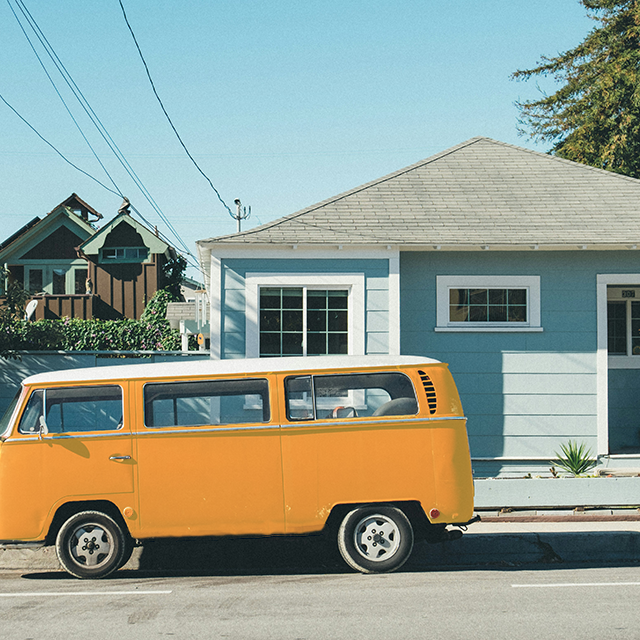What assets can I keep in Bankruptcy?

When you declare bankruptcy in Canada, you can keep some assets, like your home or vehicle, based on the province you live in. Discover the full list of exempt assets for each province below.
What assets can I keep in all provinces and territories?
- Necessary clothing
- Household goods
- One motor vehicle
- RRSPs (Registered Retirement Savings Plans).
- In some provinces, contributions made within 12 months of filing bankruptcy aren’t exempt.
- RRIFs (Registered Retirement Funds).
- In some provinces, contributions made within 12 months of filing bankruptcy aren’t exempt.
- LIFs (Life Income Funds)
- LIRAs (Locked-In Retirement Accounts)
- RDSPs (Registered Disability Saving Plans)
- Life insurance policies where the beneficiary named is the spouse, child, parent, or grandchild
- Most pension plans
To find out which assets you'll be able to keep during bankruptcy, book a free consultation with a Licensed Insolvency Trustee.
What assets can I keep in bankruptcy in each province?
Alberta | British Columbia | Manitoba | New Brunswick | Newfoundland & Labrador | Northwest Territories | Nova Scotia | Nunavut | Ontario | PEI | Saskatchewan | Yukon
What assets can I keep during bankruptcy in Alberta?
- The equity in your principal residence, including a mobile home, up to a value of $40,000.
- If you’re a co-owner of the residence, the exemption amount is decided based on your ownership interest.
- One motor vehicle, up to a value of $5,000.
- Enough food for you and your dependents over the next 12 months.
- Necessary clothing up to a value of $4,000.
- Household goods up to a value of $4,000.
- Medical and dental aids required by you and your dependents.
- Personal property or tools of the trade (i.e., tools, equipment, books, computer) needed for your occupation up to a value of $10,000.
Specific exemptions for farmers:
If your principal source of livelihood is farming, other exemptions include:
- Personal property needed for the proper and efficient running of your farm for the next 12 months.
- 160 acres of land, if your principal residence is on those 160 acres and the 160 acres is part of your farm.
For further details on what you can keep, book a free consultation with a Licensed Insolvency Trustee.
What assets can I keep during bankruptcy in British Columbia?
- The equity in your principal residence:
- Up to $12,000 within the Metro Vancouver Regional District or the Capital Regional District (Victoria).
- Up to $9,000 in the rest of the province.
- Clothing and necessary personal effects.
- Household goods up to a value of $4,000.
- One motor vehicle, up to a value of $5,000.
- $2,000 if under Maintenance Enforcement.
- Medical and dental aids required by you and your dependents.
- Personal property or tools of the trade (i.e., tools, equipment, books, computer) needed for your occupation up to a value of $10,000.
- DPSPs (Deferred Profit-Sharing Plans), except contributions made within 12 months of filing bankruptcy.
For further details on what you can keep, book a free consultation with a Licensed Insolvency Trustee.
What assets can I keep during bankruptcy in Manitoba?
- The equity in your principal residence, up to $2,500 if sole owner or $1,000 if co-owner.
- Household goods up to a value of $4,500.
- Necessary clothing and personal effects.
- Necessary household food and fuel for six months or cash equal.
- One motor vehicle, if needed for work, up to a value of $3,000.
- Tools of the trade (i.e., tools, equipment, books, computer) up to a value of $7,500.
- Medical and dental aids required by you and your dependents.
- DPSPs (Deferred Profit-Sharing Plans).
Specific exemptions for farmers:
If your principal source of livelihood is farming, other exemptions include:
- All farmland, houses, stables, barns, and fences on up to 160 acres.
- A motor vehicle.
- Farm machinery, dairy utensils, and farm equipment needed.
- All livestock necessary for the next 12 months of operation.
- Enough seed to seed all your land under cultivation.
For further details on what you can keep, book a free consultation with a Licensed Insolvency Trustee.
What assets can I keep during bankruptcy in New Brunswick?
- Household goods up to a value of $5,000.
- Necessary clothing and personal effects for you and your dependents, up to a value of $4,000.
- One motor vehicle (car, truck, SUV, van, or motorcycle) with a value of $6,500 or less.
- Tools of the trade (i.e., tools, equipment, books, computer) needed for your occupation.
For further details on what you can keep, book a free consultation with a Licensed Insolvency Trustee.
What assets can I keep during bankruptcy in Newfoundland and Labrador?
- The equity in your principal residence, up to a value of $10,000.
- One motor vehicle, up to a value of $2,000.
- Household goods up to a value of $4,000.
- Necessary clothing and personal effects up to a value of $4,000.
- Enough food for you and your dependents over the next 12 months.
- Enough fuel or heating as necessary for you and your dependents.
- Domesticated animals that are kept as pets and aren't used for business purposes.
- Items of sentimental value, up to $500.
- Tools of the trade (i.e., tools, equipment, books, computer), if you are self-employed, up to a value of $10,000.
- Medical and dental aids required by you and your dependents.
- DPSPs (Deferred Profit-Sharing Plans).
For further details on what you can keep, book a free consultation with a Licensed Insolvency Trustee.
What assets can I keep during bankruptcy in the Northwest Territories?
- The equity in your principal residence up to the value of $50,000.
- One motor vehicle with a value of $6,000 or less.
- Household goods up to a value of $5,000.
- Necessary clothing for you and your dependents.
- Medical and dental aids required by you and your dependents.
- Enough food, fuel and other necessities for you and your dependents over the next 12 months.
- Tools of the trade (i.e., tools, equipment, books, computer) up to $12,000 in value and tools used for hunting up to a value of $15,000.
- DPSPs (Deferred Profit-Sharing Plans), except contributions made within 12 months of filing bankruptcy.
For further details on what you can keep, book a free consultation with a Licensed Insolvency Trustee.
What assets can I keep during bankruptcy in Nova Scotia?
- One motor vehicle owned outright with a value of $6,500 or less.
- Household goods up to a value of $5,000.
- Necessary clothing for you and your dependents.
- Medical and dental aids required by you and your dependents.
- Food, fuel and other necessaries needed for you and your dependents.
- Tools of the trade (i.e., tools, equipment, books, computer) needed for your occupation, including farm equipment and fishing nets, up to a value of $7,500.
- All grain, seed or livestock that are used domestically by the household.
- DPSPs (Deferred Profit-Sharing Plans).
For further details on what you can keep, book a free consultation with a Licensed Insolvency Trustee.
What assets can I keep during bankruptcy in Nunavut?
- The equity in your principal residence up to the value of $35,000.
- One motor vehicle.
- All necessary household goods.
- Necessary clothing for you and your dependents.
- Medical and dental aids required by you and your dependents.
- Enough food, fuel and other necessaries needed for you and your dependents over the next 12 months.
- Necessary tools of the trade (i.e., tools, equipment, books, computer), including hunting tools.
- DPSPs (Deferred Profit-Sharing Plans), except contributions made within 12 months of filing bankruptcy.
For further details on what you can keep, book a free consultation with a Licensed Insolvency Trustee.
What assets can I keep during bankruptcy in Ontario?
- The equity in your principal residence, up to $10,783 in value (Some exceptions apply).
- One motor vehicle not exceeding a value of $7,117.
- Necessary clothing for you and your dependents.
- Household goods, up to a value of $14,180.
- Tools of the trade (i.e., tools, equipment, books, computer) needed for your occupation up to a value of $14,405.
- DPSPs (Deferred Profit-Sharing Plans).
Specific exemptions for farmers:
If your principal source of livelihood is farming, other exemptions include:
- Farming tools, up to $31,379 in value.
- Livestock, fowl, bees, books, tools and implements of trade, up to $29,000 in value.
For further details on what you can keep, book a free consultation with a Licensed Insolvency Trustee.
What assets can I keep during bankruptcy in Prince Edward Island?
- One motor vehicle (car, truck, SUV, van, or motorcycle) with a value up to $3,000. If your vehicle is needed for your occupation or for medical reasons, the value increases to $6,500.
- Necessary clothing for you and your dependents.
- Household goods, up to a value of $5,000.
- RDSPs (Registered Disability Savings Plans).
Specific exemptions for farmers:
If your principal source of livelihood is farming, other exemptions include:
- Farming tools, instruments and other chattels needed for your occupation.
- Livestock, fowl, agricultural machinery, and equipment needed for your farming operation, up to a value of $5,000.
- Enough seed to cultivate farmland, up to 100 acres.
For further details on what you can keep, book a free consultation with a Licensed Insolvency Trustee.
What assets can I keep during bankruptcy in Saskatchewan?
- The equity in your principal residence, up to $50,000.
- Clothing and necessary personal effects up to a value of $7,500.
- Household goods.
- One motor vehicle with a value of $10,000 or less.
- Medical and dental aids required by you and your dependents.
- Personal property or tools of the trade (i.e., tools, equipment, books, computer) needed for your occupation.
- Domestic animals up to a value of $2,000.
- DPSPs (Deferred Profit-Sharing Plans).
Specific exemptions for farmers:
If your principal source of livelihood is farming, other exemptions include:
- The equity in your principal residence, up to $32,000*.
- Household goods, up to a value of $10,000.
- Enough cash or crops to provide food and fuel.
- Unpaid harvesting costs and living expenses until next harvest.
- All livestock, farm machinery and equipment, including one car or truck, for up to 12 months of operations or one motor vehicle, if needed for business use.
- Tools of the trade (i.e., tools, equipment, books, computer), including office furniture and equipment, up to a value of $20,000.
- Two bushels of seed per acre of land.
*May differ based on specific circumstances.
For further details on what you can keep, book a free consultation with a Licensed Insolvency Trustee.
What assets can I keep during bankruptcy in Yukon?
- The equity in your principal residence, up to $3,000 in value.
- Household goods not exceeding $200 in value.
- Necessary clothing for you and your dependents.
- Medical and dental aids required by you and your dependents.
- Enough food, fuel and other necessaries needed for you and your dependents over the next 12 months.
- Tools of the trade (i.e., tools, equipment, books, computer), including livestock, up to $600 in value.
- DPSPs (Deferred Profit-Sharing Plans), except contributions made within 12 months of filing bankruptcy.
For further details on what you can keep, book a free consultation with a Licensed Insolvency Trustee.
Take the first step to debt freedom
Speak to one of our debt solutions professionals during a free, no-obligation consultation.
Related articles
Loading







